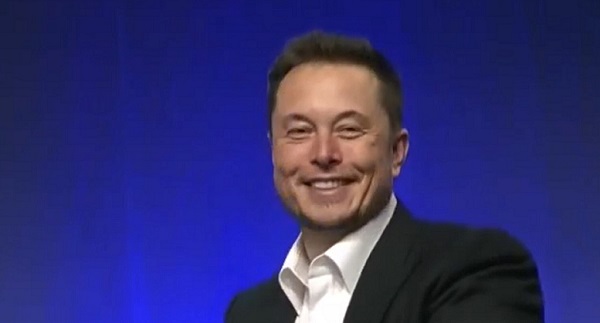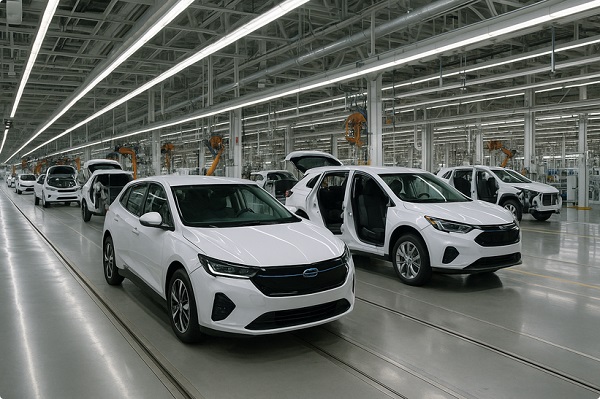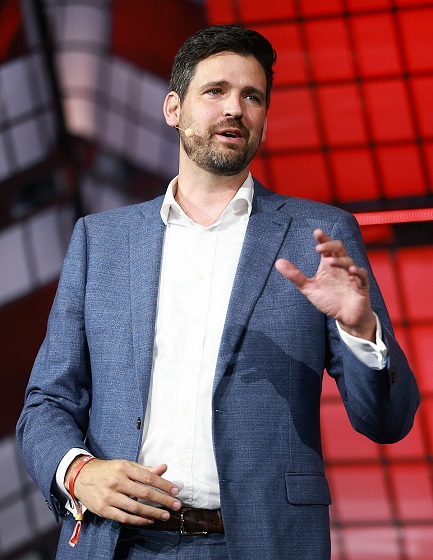Automotive
Elon Musk Poised To Become World’s First Trillionaire After Shareholder Vote


From the Daily Caller News Foundation
At Tesla’s Austin headquarters, investors backed Musk’s 12-step plan that ties his potential trillion-dollar payout to a series of aggressive financial and operational milestones, including raising the company’s valuation from roughly $1.4 trillion to $8.5 trillion and selling one million humanoid robots within a decade. Musk hailed the outcome as a turning point for Tesla’s future.
“What we’re about to embark upon is not merely a new chapter of the future of Tesla but a whole new book,” Musk said, as The New York Times reported.
Dear Readers:
As a nonprofit, we are dependent on the generosity of our readers.
Please consider making a small donation of any amount here.
Thank you!
The decision cements investor confidence in Musk’s “moonshot” management style and reinforces the belief that Tesla’s success depends heavily on its founder and his leadership.
Tesla Annual meeting starting now
https://t.co/j1KHf3k6ch— Elon Musk (@elonmusk) November 6, 2025
“Those who claim the plan is ‘too large’ ignore the scale of ambition that has historically defined Tesla’s trajectory,” the Florida State Board of Administration said in a securities filing describing why it voted for Mr. Musk’s pay plan. “A company that went from near bankruptcy to global leadership in E.V.s and clean energy under similar frameworks has earned the right to use incentive models that reward moonshot performance.”
Investors like Ark Invest CEO Cathie Wood defended Tesla’s decision, saying the plan aligns shareholder rewards with company performance.
“I do not understand why investors are voting against Elon’s pay package when they and their clients would benefit enormously if he and his incredible team meet such high goals,” Wood wrote on X.
Norway’s sovereign wealth fund, Norges Bank Investment Management — one of Tesla’s largest shareholders — broke ranks, however, and voted against the pay plan, saying that the package was excessive.
“While we appreciate the significant value created under Mr. Musk’s visionary role, we are concerned about the total size of the award, dilution, and lack of mitigation of key person risk,” the firm said.
The vote comes months after Musk wrapped up his short-lived government role under President Donald Trump. In February, Musk and his Department of Government Efficiency (DOGE) team sparked a firestorm when they announced plans to eliminate the U.S. Agency for International Development, drawing backlash from Democrats and prompting protests targeting Musk and his companies, including Tesla.
Back in May, Musk announced that his “scheduled time” leading DOGE had ended.
Automotive
Canada’s EV experiment has FAILED

By Dan McTeague
The government’s attempt to force Canadians to buy EVs by gambling away billions of tax dollars and imposing an EV mandate has been an abject failure.
GM and Stellantis are the latest companies to back track on their EV plans in Canada despite receiving billions in handouts from Canadian taxpayers.
Dan McTeague explains in his latest video.
Automotive
Carney’s Budget Risks Another Costly EV Bet

From the Frontier Centre for Public Policy
GM’s Ontario EV plant was sold as a green success story. Instead it collapsed under subsidies, layoffs and unsold vans
Every age invents new names for old mistakes. In ours, they’re sold as investments. Before the Carney government unveils its November budget promising another future paid for in advance, Canadians should remember Ingersoll, Ont., one of the last places a prime minister tried to buy tomorrow.
Eager to transform the economy, in December 2022, former prime minister Justin Trudeau promised that government backing would help General Motors turn its Ingersoll plant into a beacon of green industry. “By 2025 it will be producing 50,000 electric vehicles per year,” he declared: 137 vehicles daily, six every hour. What sounded like renewal became an expensive demonstration of how progressive governments peddle rampant spending as sound strategy.
The plan began with $259 million from Ottawa and another $259 million from Ontario: over half a billion to switch from Equinox production to BrightDrop electric delivery vans. The promise was thousands of “good, middle-class jobs.”
The assembly plant employed 2,000 workers before retooling. Today, fewer than 700 remain; a two-thirds collapse. With $518 million in public funds and only 3,500 vans built in 2024, taxpayers paid $148,000 per vehicle. The subsidy works out to over half a million dollars per remaining worker. Two out of every three employees from Trudeau’s photo-op are now unemployed.
The failure was entirely predictable. Demand for EVs never met the government’s plan. Parking lots filled with unsold inventory. GM did the rational thing: slowed production, cut staff and left. The Canadian taxpayer was left to pay the bill.
This reveals the weakness of Ottawa’s industrial policy. Instead of creating conditions for enterprise, such as reliable energy, stable regulation, and moderate taxes, progressive governments spend to gain applause. They judge success by the number of jobs announced, yet those jobs vanish once the cameras leave.
Politicians keep writing cheques to industry. Each administration claims to be more strategic, yet the pattern persists. No country ever bought its way into competitiveness.
Trudeau “bet big on electric vehicles,” but betting with other people’s money isn’t vision; it’s gambling. The wager wasn’t on technology but narrative, the naive idea that moral intention could replace market reality. The result? Fewer jobs, unwanted products and claims of success that convinced no one.
Prime Minister Mark Carney has mastered the same rhetorical sleight of hand. Spending becomes “investment,” programs become “platforms.” He promises to “catalyze unprecedented investments” while announcing fiscal restraint: investing more while spending less. His $13-billion federal housing agency is billed as a future investment, though it’s immediate public spending under a moral banner.
“We can build big. Build bold. Build now,” Carney declared, promising infrastructure to “reduce our vulnerabilities.” The cadence of certainty masks the absence of limits. Announcing “investment” becomes synonymous with action itself; ambition replaces accountability.
The structure mirrors the Ingersoll case: promise vast returns from state-directed spending, redefine subsidy as vision, rely on tomorrow to conceal today’s bill. “Investment” has become the language of evasion, entitlement and false pride.
As Carney prepares his first budget, Canadians should remember what happened when their last leader tried to buy a future with lavish “investment.”
A free economy doesn’t need bribery to breathe. It requires the discipline of risk and liberty to fail without dragging a country down. Ingersoll wasn’t undone by technology but by ideological conceit. Prosperity cannot be decreed and markets cannot be commanded into obedience.
Every age invents new names for old mistakes. Ours keeps making the same ones. Entitled hubris knows no bounds.
Marco Navarro-Genie is vice-president of research at the Frontier Centre for Public Policy and co-author, with Barry Cooper, of Canada’s COVID: The Story of a Pandemic Moral Panic (2023).
-

 Energy2 days ago
Energy2 days agoEby should put up, shut up, or pay up
-

 Business2 days ago
Business2 days agoPulling back the curtain on the Carney government’s first budget
-

 Daily Caller2 days ago
Daily Caller2 days agoUS Eating Canada’s Lunch While Liberals Stall – Trump Admin Announces Record-Shattering Energy Report
-

 Business1 day ago
Business1 day agoThe Liberal budget is a massive FAILURE: Former Liberal Cabinet Member Dan McTeague
-

 Business1 day ago
Business1 day agoCarney’s budget spares tax status of Canadian churches, pro-life groups after backlash
-

 COVID-191 day ago
COVID-191 day agoFreedom Convoy leader Tamara Lich to appeal her recent conviction
-

 Justice1 day ago
Justice1 day agoCarney government lets Supreme Court decision stand despite outrage over child porn ruling
-

 espionage17 hours ago
espionage17 hours agoU.S. Charges Three More Chinese Scholars in Wuhan Bio-Smuggling Case, Citing Pattern of Foreign Exploitation in American Research Labs








